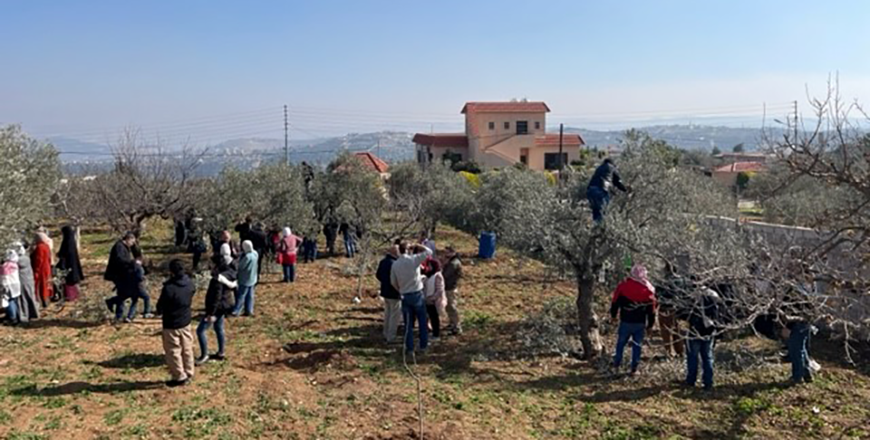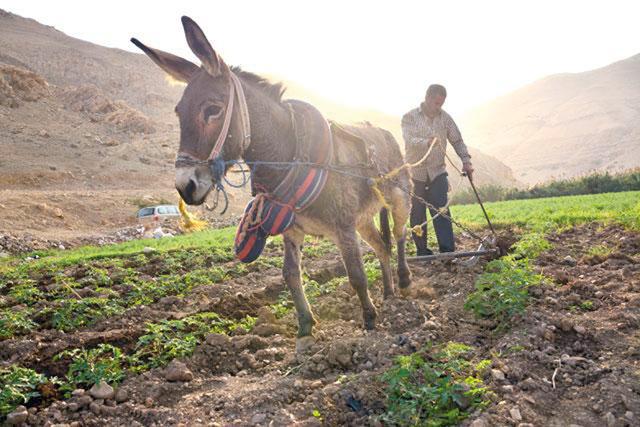You are here
Jordan should move away from unsustainable agriculture — report
By Hana Namrouqa - Mar 12,2014 - Last updated at Mar 12,2014
AMMAN — Jordan should move away from unsustainable agriculture, food processing activities and water-inefficient sub-sectors, a report released on Wednesday recommended.
The Food and Agriculture Organisation (FAO) report said investments should mainly, if not exclusively, target profitable food chains that have made clear efforts to improve their water efficiency and that have the potential to further enhance the productivity of the water they consume.
The report’s initial findings suggested that the poultry sector for domestic consumption and the Jordan Valley’s fruit and vegetables for high-value markets “deserve priority attention”.
Released during the Investing in Efficiency: Water along the Food Chain in Jordan Forum, the report noted that the poultry meat industry’s prospects are positive, as growing domestic consumption is a promising sign for the sector, which is likely to experience a further demand-driven expansion in the coming years.
On the vegetable chain, the report said the private sector, including producers and agribusinesses, which has made major investments to improve its on-farm water efficiency, now needs to make a decisive move towards the ultimate maximisation of water productivity.
“Producers need to switch to new crops and markets that will allow them to produce more value without increasing the use of water. Producers also need to invest in energy efficiency improvement and enhancement of labour productivity since these are currently the most problematic issues affecting future sector development, undermining investment attractiveness,” the report said.
The forum, organised by the FAO and the European Bank for Reconstruction and Development in cooperation with the Agriculture Ministry, gathered policy makers, international organisations and investors to discuss ways to increase water efficiency and productivity for a more sustainable agriculture sector, suggest areas of investment from the private sector, and improve coordination between the public and private sectors, according to organisers.
During the event, Agriculture Ministry Secretary General Radi Tarawneh said the Jordan Valley’s winter fruits and vegetables, which are irrigated crops, are among the country’s main agricultural produce exports.
In addition, the poultry value chain is one of the main industries that witnessed progress over the past few years, Tarawneh said, noting that “there is still room for further growth in this sector.”
“Fruits and vegetables and the poultry chains are two of the main supporters of Jordan’s agriculture sector. The two sectors, where water efficiency methods are applied, still have opportunities for improving productivity and increasing competitiveness.”
He underscored that the commercial agriculture sector requires more investments that enhance its food chain value, highlighting the importance of improving water quality and efficiency.
Water use by the food sector, which accounts for around 60 per cent of total use in the country, is in line with worldwide consumption levels, but Jordan ranks highest globally among water-deficit countries, organisers said. The major user, agriculture, contributes heavily to the country’s chronic imbalance between resource availability and use, they noted, attributing the imbalance primarily to the unsustainable overdrawing of highland groundwater.
Water Ministry Secretary General Basem Tulfah cited fiscal issues as among the sector’s main challenges, noting that investments worth JD5-6 billion are needed to upgrade the country’s water infrastructure.
Tulfah added that growing demand for water due to an ongoing influx of refugees is another challenge, in addition to the fact that groundwater resources are being depleted at an alarming rate.
“The actual needs of water for irrigation purposes in the Jordan Valley stand at 220 million cubic metres per year. Only 60 per cent of the Jordan Valley’s irrigation needs are met due to the water shortage,” Tulfah pointed out.
Meanwhile, Turi Fileccia, senior agronomist at FAO’s Investment Centre and main author of the report, said the fruit and vegetables, and poultry value chains have already achieved relatively high water efficiency, yet water productivity and overall competitiveness can be improved.
“Investment is required to further develop the most profitable segment of the domestic poultry meat industry, and to expand the growing area of the Jordan Valley to produce fruits and vegetables that target high-end export markets,” Fileccia said.
Related Articles
AMMAN — Around 190 olive growers, industry workers and government technicians from Jordan have benefitted from training sessions on improvin
AMMAN — Farmers gathered at the Ministry of Agriculture on Sunday to stage a sit-in demanding that government take measures to alleviate the
AMMAN — The overall difficult situation in the Kingdom, coupled with low demand for fruit and vegetables, put additional strain on Jordan Va


















